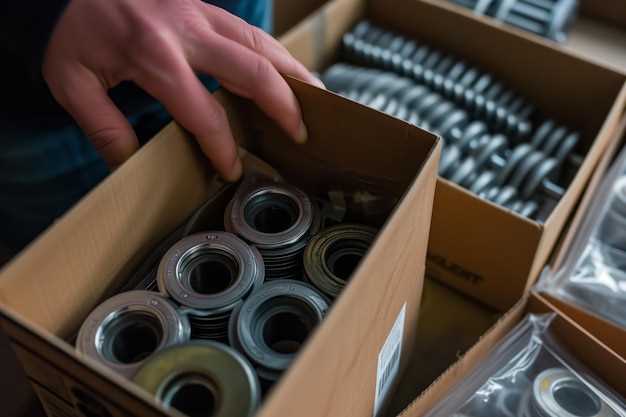
When it comes to maintaining and repairing your vehicle, the importance of using genuine car parts cannot be overstated. Using authentic components not only ensures optimal performance but also enhances the longevity of your vehicle. However, navigating the vast market of automotive suppliers can be challenging, especially when it comes to identifying reliable US sources for these genuine parts.
Many car owners might wonder where to find trustworthy suppliers that offer authentic parts without compromising on quality. The proliferation of counterfeit products in the automotive industry makes it essential for consumers to do their due diligence in sourcing components that meet the manufacturer’s specifications. This article will guide you through practical steps and considerations for securing genuine car parts from reputable US suppliers, ensuring that your vehicle remains in top-notch condition.
Understanding the different tiers of parts available in the market is crucial in your search. US suppliers often differentiate between OEM (Original Equipment Manufacturer) and aftermarket parts, each having its own set of advantages and potential drawbacks. By familiarizing yourself with these options, you can make informed decisions that suit your vehicle’s needs while maintaining its value.
Identifying Reputable US Suppliers for Genuine Car Parts
When searching for authentic car parts, it’s essential to locate reputable suppliers within the US. Genuine parts not only ensure optimal vehicle performance but also enhance safety and longevity. To begin the identification process, consider the following criteria.
Firstly, look for suppliers with established reputations. Research their history, customer reviews, and ratings on platforms like Google and social media. Positive feedback from other car owners can serve as a strong indicator of a supplier’s reliability and the authenticity of their parts.
Secondly, confirm that the supplier is an authorized dealer for the brands they carry. Authorized dealerships and distributors receive genuine inventory directly from manufacturers, reducing the risk of counterfeit parts. Check their website or directly contact them to verify their status as an authorized supplier.
Another critical factor is the range of products offered. Reputable suppliers typically have a diverse selection of car parts covering various makes and models. A well-stocked inventory reflects the supplier’s commitment to quality and customer service.
Additionally, transparent return policies and warranty offerings are signs of a trustworthy supplier. Suppliers who stand by their products often provide warranties to ensure that buyers are protected against defects or discrepancies.
Also, consider the supplier’s customer service quality. A responsive customer support team can be invaluable when seeking assistance or advice on authentic parts. Test their responsiveness by reaching out with inquiries and observing the level of service received.
Lastly, take advantage of online marketplaces that specialize in genuine car parts. These platforms often vet their sellers, providing an extra layer of security when purchasing. Reading the seller’s ratings and feedback can also guide your decision.
By focusing on these criteria, you can effectively identify reputable US suppliers for genuine car parts, ensuring that your vehicle remains in optimal condition while avoiding the pitfalls of counterfeit products.
Verifying the Authenticity of Car Parts Before Purchase

When seeking genuine car parts from US suppliers, verifying authenticity is crucial to ensure quality and compatibility. Counterfeit parts can compromise vehicle safety and performance, making this step essential for car owners.
First, always purchase from authorized dealers or reputable retailers. Many manufacturers provide lists of approved distributors, ensuring that the parts offered are genuine. Additionally, check for proper certifications and warranties, as these can be indicators of authenticity.
Another important aspect is the packaging. Authentic car parts typically come in branded packaging with security features, such as holograms or QR codes. Inspecting the packaging can provide clues about the part’s legitimacy.
Furthermore, research the part number associated with your needed component. Genuine parts will have specific part numbers that can be verified on the manufacturer’s website. Cross-referencing this information helps to confirm that you are purchasing the correct item.
Finally, be wary of prices that are significantly lower than typical market rates. While discounts are common, steep price reductions may signal counterfeit products. Trusting your instincts and conducting thorough research plays a vital role in ensuring that you acquire authentic car parts.
Understanding Return Policies and Warranty Options for Car Parts

When purchasing genuine car parts from suppliers in the US, it’s essential to comprehend the return policies and warranty options available. This knowledge ensures that you are protected in case of defects or issues with the parts you receive.
Return Policies
Return policies can vary significantly among different suppliers. Here are key points to consider:
- Time Frame: Most suppliers establish a specific window for returns, usually ranging from 30 to 90 days. Familiarize yourself with this period to ensure timely returns if necessary.
- Condition of Parts: Returns typically require that parts be unused and in their original packaging. Check if the supplier has specific guidelines regarding the condition of the parts upon return.
- Restocking Fees: Be aware that some suppliers may charge restocking fees for returned items. This fee can impact your total expenses if you decide to return parts.
Warranty Options
Genuine car parts often come with manufacturer warranties, providing peace of mind regarding quality and reliability. Key aspects of warranty options include:
- Duration: Warranties can range from one year to lifetime coverage, depending on the supplier and the nature of the parts. Always check the length of the warranty when purchasing.
- Coverage: Understand what the warranty covers. Some warranties may include defects in material and workmanship, while others may have exclusions based on misuse or improper installation.
- Claim Process: Each supplier has a specific process for filing warranty claims. Familiarize yourself with the requirements to ensure a smooth experience if you need to file a claim.
In summary, being aware of return policies and warranty options when sourcing genuine car parts from suppliers will help you make informed purchasing decisions. Always read the fine print and ask questions if needed to safeguard your investment.
